The deadly grip of depression
- Published

Pedie McAllister said he believed depression was as serious an illness as cancer
No-one is immune from depression. A psychological disorder, it can grip anyone at just about any time.
While it cannot directly kill the same way that an illness like cancer or heart disease might, it can lead indirectly to a person losing their life.
Pedie McAllister knows all about it - his wife Joanne took her own life on 17 March 2015.
Joanne, a mother of two children and a wife to Pedie, was 36.
Hoping to help others, Pedie told me how depression has destroyed his life.
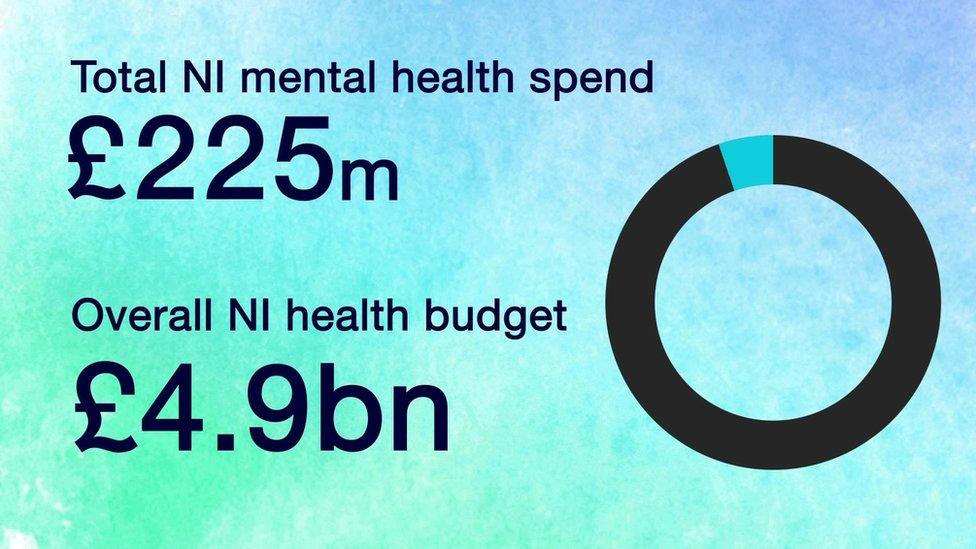
"Depression has completely turned our family upside down. On St Patrick's Day 2015 Joanne took her own life," he said.
"That left me without my wife and our two children without a mother. It just changed our family forever."
Pedie is an extremely quiet and shy man, making eye contact is difficult. But 18 months after his wife's death he's breaking his silence in the hope he might help one other family.

Pedie's wife Joanne took her life on St Patrick's Day last year
"When the police came to the door and informed me that Joanne had taken her own life, it's like the life that you had known is frozen and then you start a new life after that," he said.
"It's not something you would wish on anyone. Everything you thought you knew, everything you hold dear has been taken away from you."
Joanne and Pedie lived in Dungannon. He tells me that his wife was kind and would have given a stranger her last penny.
But even in her 20s she was battling depression.
Then, after the birth of their second child, she was also diagnosed with post-natal depression.
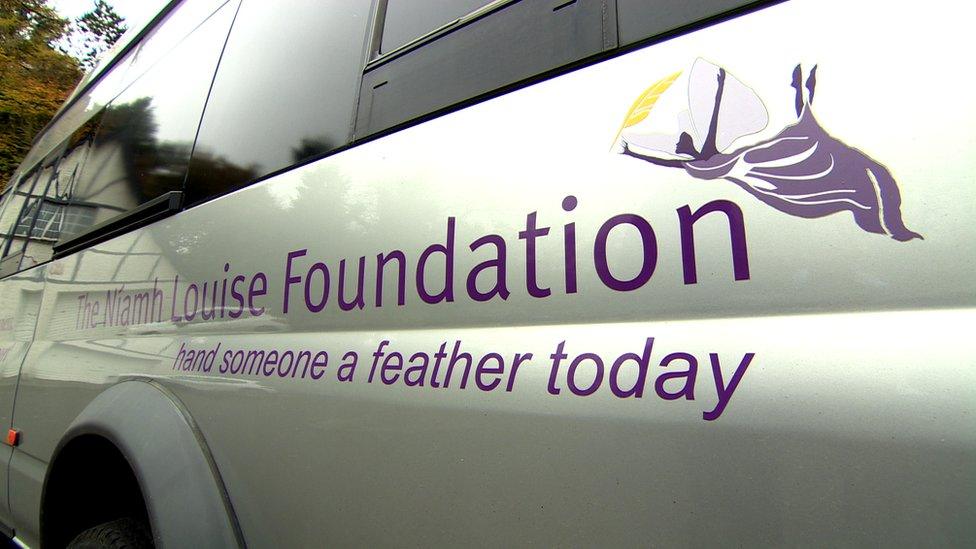
The Niamh Louise Foundation was set up after the death of 15-year-old Niamh McKee
Pedie tells me that depression is an illness and triggered many dark days. In fact, he says, he believes it is as serious as having cancer.
"Living with someone who has depression is very similar to living with someone who has cancer," he said.
"You can see it taking the life from them, you can see it transforming them in front of your eyes.
"You can see them on their good days and you can see the change in them on their bad days.
"Depression changed Joanne - she was almost unrecognisable from the person she normally was."

Pedie said Joanne became almost unrecognisable from the person she normally was
Pedie is receiving help from the Niamh Louise Foundation, a suicide support group based in Dungannon.
It opened its doors in February 2006 following the death of Niamh McKee, a local 15-year-old girl who took her own life.
Her mum and dad established the foundation and while they are proud of its success, they say it is bitter-sweet as it is a sad reflection of the growing need for the services that they provide.
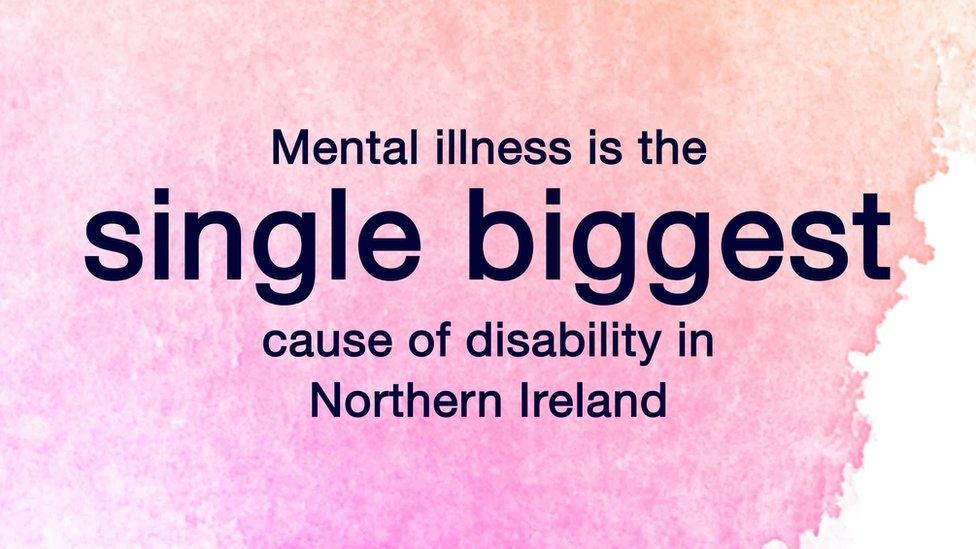
The foundation's Catherine McBennett says they do not have enough staff.
"It's overwhelming. When we started it was to reach out to people in this area and in particular to those in rural areas," she said.
"But we've people coming from all over - even Dublin.
"We are filling a gap between statutory and the voluntary sector. We survive on fundraising. The government must take notice and realise this problem (mental health) is getting bigger and it is not going away."
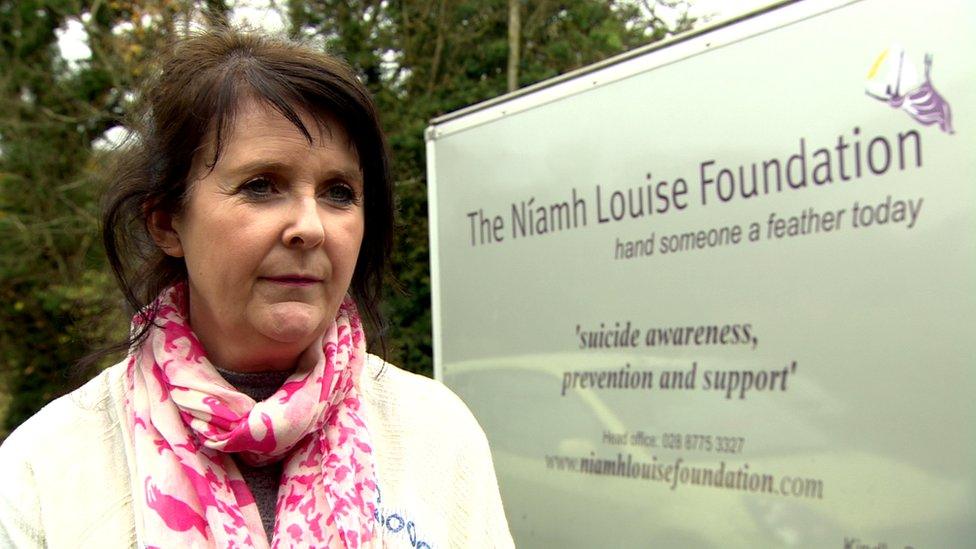
Catherine McBennett said the foundation was helping people from as far away as Dublin
I met Pedie during a support group meeting.
There were men and women of all ages and there was also a very young girl. All either had experienced a mental health problem or knew someone who had. The main issue was accessing treatment.
Pedie said his wife was passed between two different health trusts. There was no continuity of treatment and too much emphasis on medication.
"The help that Joanne received was haphazard at best. At times, it was split between two different health trusts," he said.
"It wasn't accessible. It was usually at crisis point before you could get to see anyone. Mostly it was about medication - it was very hard to see a see a therapist, a psychologist. It was a battle."
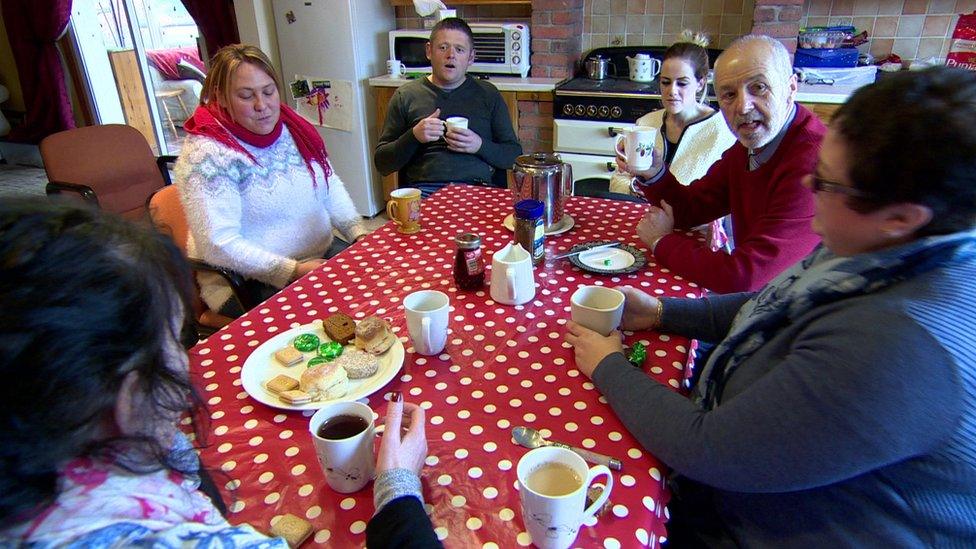
The group holds support meetings for people who have been affected by metal health issues
Pedie urges people not to be embarrassed but to seek help.
I asked him if he has regrets?
"Of course, but not in trying to get help for Joanne," he said, adding that he did try, but Joanne was unable to wait.